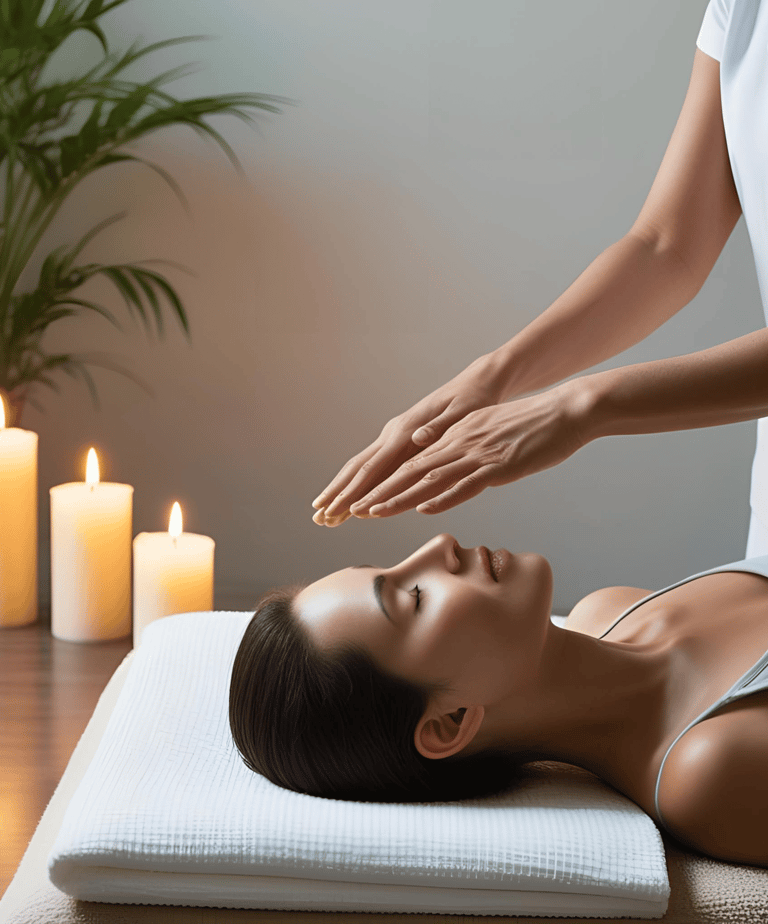About Reiki
What is Reiki?
Reiki is a form of holistic healing that originated in Japan in the early 20th century. The word "Reiki" is derived from two Japanese words: Rei (meaning "universal" or "spiritual") and Ki (meaning "life energy"). This practice involves the transfer of energy from the practitioner to the recipient through gentle touch or simply by being in close proximity. Reiki aims to promote balance, healing, and relaxation by channeling universal life energy into the body.
Reiki is a non-invasive healing technique that is based on the concept that energy flows through all living things. When this energy becomes blocked or unbalanced, it can lead to physical, emotional, or mental issues. Reiki works by helping to restore the balance and flow of energy, enhancing the body’s natural ability to heal itself. It is often used as a complementary treatment alongside conventional medical practices, but it can also be beneficial as a stand-alone therapy.
During a Reiki session, the recipient lies fully clothed on a massage table while the practitioner lightly places their hands on or near the body in a series of positions. The practitioner channels healing energy, which is believed to promote deep relaxation and activate the body’s natural healing processes.
Benefits of Reiki
Reiki offers numerous benefits for physical, emotional, and spiritual well-being. Some of the most notable benefits include:
Stress Reduction and Relaxation: Reiki induces a deep state of relaxation, helping to reduce stress and anxiety. By calming the nervous system, it allows the body to enter a state of healing and rejuvenation.
Pain Relief: Reiki is commonly used to manage chronic pain conditions, including back pain, migraines, and arthritis. By addressing energy blockages, Reiki can help reduce discomfort and promote pain relief.
Emotional Healing: Reiki helps release emotional blockages, making it a powerful tool for dealing with past traumas, grief, depression, and anxiety. It encourages emotional healing by fostering a sense of inner peace and balance.
Improved Sleep: Many people report improved sleep patterns after Reiki sessions. The deep relaxation induced by Reiki helps to calm the mind, which can lead to better quality sleep and a reduction in insomnia.
Boosts Immune System Function: By balancing energy flow and reducing stress, Reiki can help strengthen the immune system, making it easier for the body to fight off illness.
Enhances Mental Clarity and Focus: Reiki helps clear mental fog and boosts clarity, focus, and concentration. It can also promote a sense of calm and mental well-being, improving overall cognitive function.
Supports Healing After Surgery or Injury: Reiki has been shown to accelerate the healing process after surgery or injury. It enhances the body’s ability to repair itself, reduces recovery time, and minimizes scar tissue formation.
Uses of Reiki
Reiki can be used for a wide variety of purposes, including:
Complementary Therapy for Medical Conditions: Reiki is often used in hospitals and medical clinics as a complementary therapy for conditions such as cancer, heart disease, and chronic illnesses.
Chronic Stress and Anxiety: For those dealing with chronic stress or anxiety, Reiki can be a helpful practice in managing emotional well-being.
Pain Management: Reiki can be used to support pain relief from conditions like fibromyalgia, headaches, or post-surgical recovery.
Personal Growth and Spiritual Development: Many people use Reiki as a tool for personal and spiritual growth, helping to foster a deeper connection with themselves and the world around them.
Animal Reiki: Reiki can also be used for pets and animals, providing relaxation and healing for a wide variety of conditions.



